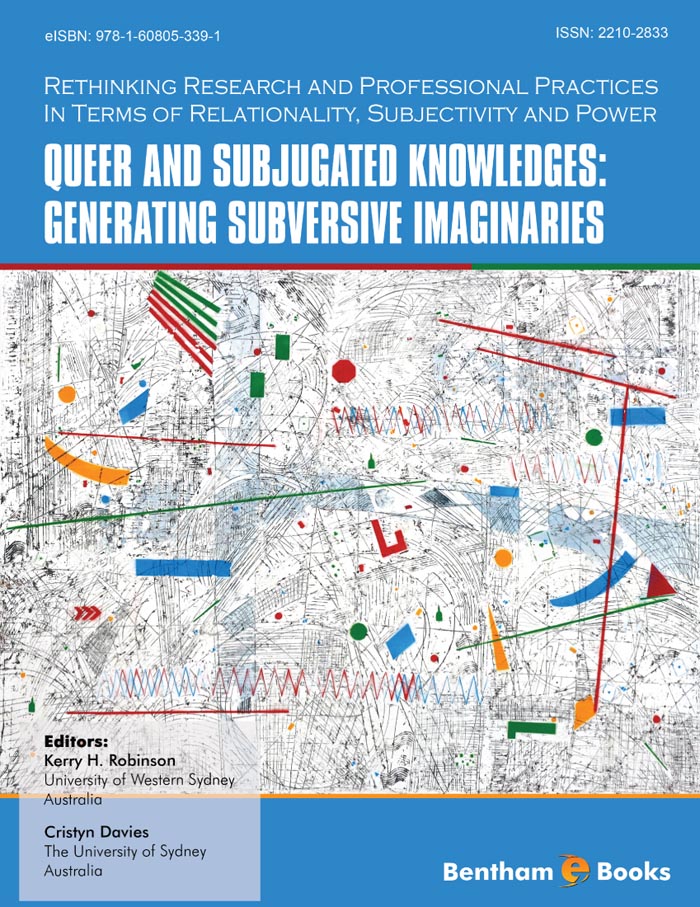Introduction
Queer and Subjugated Knowledges: Generating Subversive Imaginaries
makes an invaluable contribution to gender and sexuality studies, engaging with queer theory to reconceptualize everyday interactions. The scholars in this book respond to J. Halberstam’s call to engage in alternative imaginings to reconceptualize forms of being, the production of knowledge, and envisage a world with different sites for justice and injustice. The recent work of cultural theorist, Judith Halberstam, makes new investments in the notion of the counter-hegemonic, the subversive and the alternative. For Halberstam, the alternative resides in a creative engagement with subjugated histories, an ecstatic investment in the subcultural and a defiant refusal of a dominant model of theory. Working across Rhetoric and Cultural Studies, Gender Studies, Performance Studies, Television and Media Studies, Animation, Sociology, History, Social Policy, Childhood Studies, Education, and Cultural Geography, this unique interdisciplinary text aimed at academics, undergraduate and postgraduate students provides challenging new frameworks for generating knowledge.

